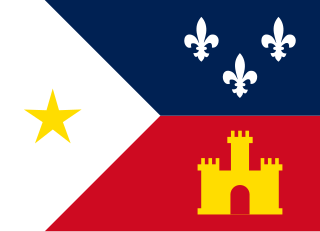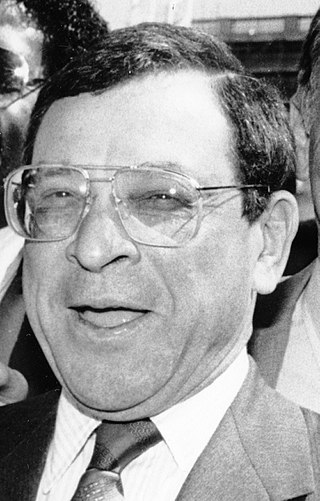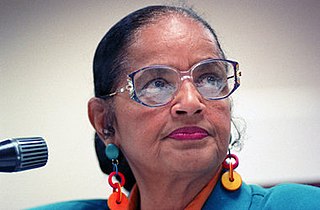
The Cajuns, also known as Louisiana Acadians, are a Louisiana French ethnicity mainly found in the US state of Louisiana and surrounding Gulf Coast states.

Gumbo is a stew that is popular in the US state of Louisiana and is the official state cuisine. Gumbo consists primarily of a strongly flavored stock, meat or shellfish, a thickener, and the Creole "holy trinity": celery, bell peppers, and onions. Gumbo is often categorized by the type of thickener used, whether okra or filé powder.

The holiday of Mardi Gras is celebrated in southern Louisiana, including the city of New Orleans. Celebrations are concentrated for about two weeks before and through Shrove Tuesday, the day before Ash Wednesday. Mardi Gras is French for Fat Tuesday, the season is known as Carnival and begins on 12th Night, January 6th, and extends until midnight before Ash Wednesday. Club, or Krewe, balls start soon after, though most are extremely private, with their Kings and Queens coming from wealthy old families and their courts consisting of the season's debutantes. Most of the high society Krewes do not stage parades. As Fat Tuesday gets nearer, the parades start in earnest. Usually there is one major parade each day ; many days have several large parades. The largest and most elaborate parades take place the last five days of the Mardi Gras season. In the final week, many events occur throughout New Orleans and surrounding communities, including parades and balls.

Mardi Gras Indians are African American carnival revelers in New Orleans, Louisiana, who dress up for Mardi Gras in suits influenced by the cultural practices of Native Americans, West Africans, and Afro-Caribbeans. The music, dance, and regalia from these cultures created the Mardi Gras Indian tradition during the era of slavery in Louisiana that continues today. This cultural tradition is a part of the African and African diaspora decorative aesthetic, and is an African-American art form.

Ernest Nathan "Dutch" Morial, was an American politician and a leading civil rights advocate. He was the first black mayor of New Orleans, serving from 1978 to 1986. He was the father of Marc Morial, who served as Mayor of New Orleans from 1994 to 2002.

The New Orleans Jazz & Heritage Festival is an annual celebration of local music and culture held at the Fair Grounds Race Course in New Orleans, Louisiana. Jazz Fest attracts thousands of visitors to New Orleans each year. The New Orleans Jazz & Heritage Festival and Foundation Inc., as it is officially named, was established in 1970 as a 501(c)(3) nonprofit organization (NPO). The Foundation is the original organizer of the New Orleans Jazz & Heritage Festival presented by Shell Oil Company, a corporate financial sponsor. The Foundation was established primarily to redistribute the funds generated by Jazz Fest into the local community. As an NPO, their mission further states that the Foundation "promotes, preserves, perpetuates and encourages the music, culture and heritage of communities in Louisiana through festivals, programs and other cultural, educational, civic and economic activities". The founders of the organization included pianist and promoter George Wein, producer Quint Davis and the late Allison Miner.

The second line is a tradition in parades organized by Social Aid and Pleasure Clubs (SAPCs) with brass band parades in New Orleans, Louisiana, United States. The "main line" or "first line" is the main section of the parade, or the members of the SAPC with the parading permit as well as the brass band. The second line consists of people who follow the band to enjoy the music, dance, and engage in community. The second line's style of traditional dance, in which participants dance and walk along with the SAPCs in a free-form style with parasols and handkerchiefs, is called "second-lining". It is one of the most foundationally Black American–retentive cultures in the United States. It has been called "the quintessential New Orleans art form – a jazz funeral without a body". Another significant difference from jazz funerals is that second line parades lack the slow hymns and dirges played at funerals.

Camille Lucie Nickerson was an American pianist, composer, arranger, collector, and Howard University professor from 1926 to 1962. She was influenced by Creole folksongs of Louisiana, which she arranged and sang.

Frances Parkinson Keyes was an American author who wrote about her life as the wife of a U.S. Senator and novels set in New England, Louisiana, and Europe. A convert to Roman Catholicism, her later works frequently featured Catholic themes and beliefs. Her last name rhymes with "eyes," not "keys."

A jazz funeral is a funeral procession accompanied by a brass band, in the tradition of New Orleans, Louisiana.

Louisiana Creoles are a Louisiana French ethnic group descended from the inhabitants of colonial Louisiana before it became a part of the United States during the period of both French and Spanish rule. They share cultural ties such as the traditional use of the French, Spanish, and Creole languages and predominant practice of Catholicism.

Kalamu ya Salaam is an American poet, author, filmmaker, and teacher from the 9th Ward of New Orleans. A well-known activist and social critic, Salaam has spoken out on a number of racial and human rights issues. For years he did radio shows on WWOZ. Salaam is the co-founder of the NOMMO Literary Society, a weekly workshop for Black writers.
The Creoles of color are a historic ethnic group of Louisiana Creoles that developed in the former French and Spanish colonies of Louisiana, Mississippi, Alabama, and Northwestern Florida, in what is now the United States. French colonists in Louisiana first used the term "Creole" to refer to people born in the colony, rather than in Europe, thus drawing a distinction between Old-World Europeans and Africans from their descendants born in the New World. Today, these Creoles of color have assimilated into Black American culture, while some retain their distinct identiy as a subset within the broader African American ethnic group.

Arnaud's is a restaurant in the French Quarter of New Orleans, Louisiana, specializing in Louisiana Creole cuisine. Established in 1918, it is one of the older and more famous restaurants in the city. The restaurant also houses a museum of the New Orleans Mardi Gras.

Gert Town is a neighborhood in the city of New Orleans, Louisiana. It is the home to Xavier University of Louisiana and is near Mid-City. Gert Town played a major role in the industrial development of the New Orleans region. The Blue Plate Mayonnaise Factory, Coca-Cola Bottling Plant, Sealtest Dairy, and Thompson-Hayward Chemical Company were all fundamental manufacturing bases of the working-class neighborhood. Gert Town was also well known for being a center of development for jazz and other music genres. Musicians such as Buddy Bolden, John Robichaux, Merry Clayton, Bunk Johnson and Allen Toussaint all came from the neighborhood and helped shape the musical influence of New Orleans.

The culture of Louisiana involves its music, food, religion, clothing, language, architecture, art, literature, games, and sports. Often, these elements are the basis for one of the many festivals in the state. Louisiana, while sharing many similarities to its neighbors along the Gulf Coast, is unique in the influence of Louisiana French culture, due to the historical waves of immigration of French-speaking settlers to Louisiana. Likewise, African-American culture plays a prominent role. While New Orleans, as the largest city, has had an outsize influence on Louisiana throughout its history, other regions both rural and urban have contributed their shared histories and identities to the culture of the state.
Brenda Marie Osbey is an American poet. She served as the Poet Laureate of Louisiana from 2005 to 2007.

Dorothy Mae DeLavallade Taylor, was an educator and politician in New Orleans, the first African-American woman to be elected to and serve in the Louisiana House of Representatives. From 1971 to 1980, she represented District 20, since renumbered, in her native New Orleans. She had started her career as a teacher in the Head Start Program, designed to benefit children in their early years.
















